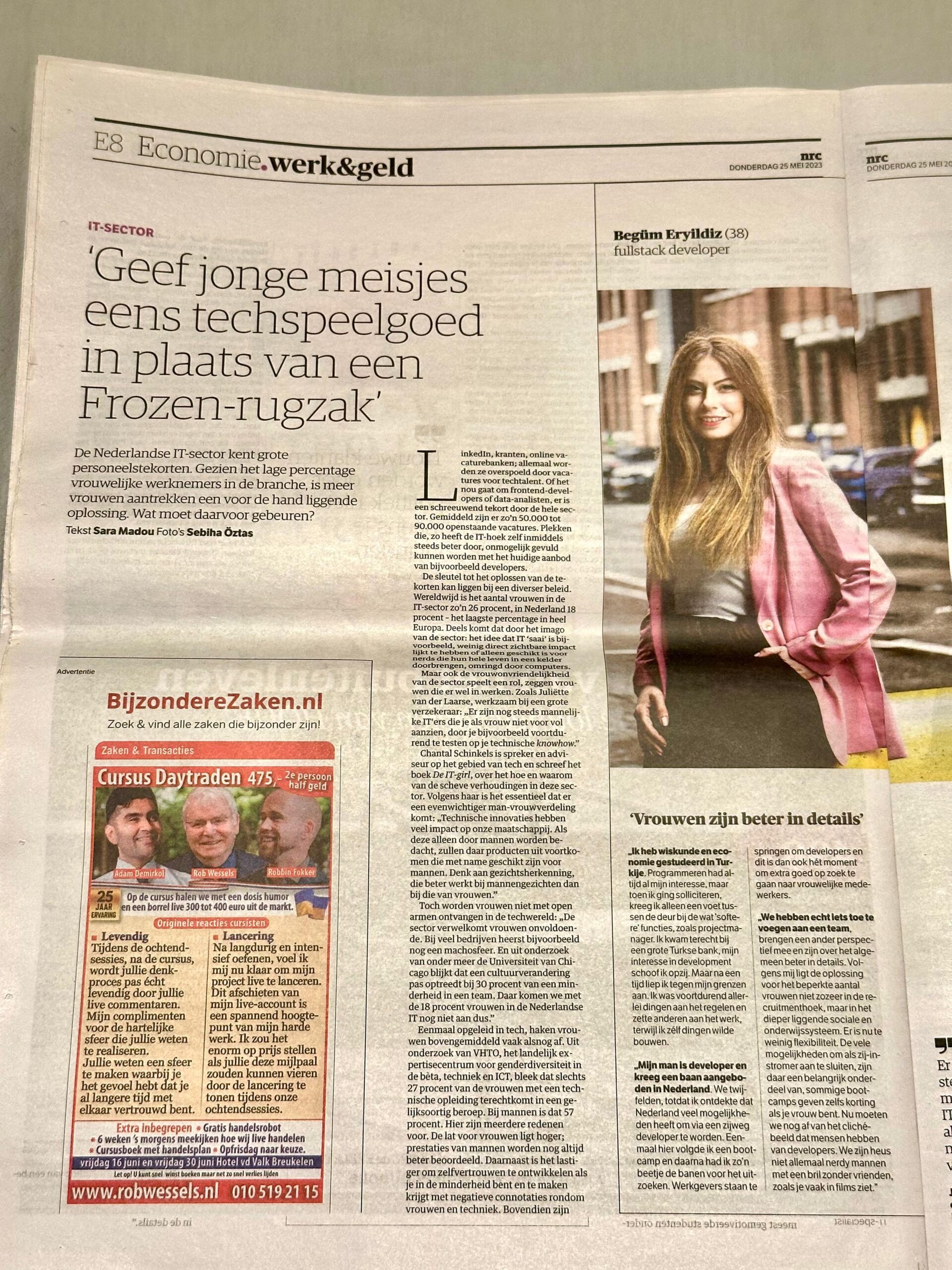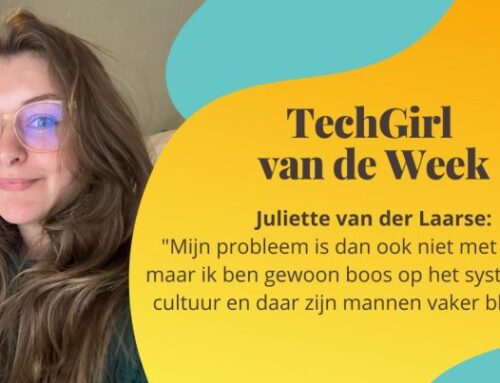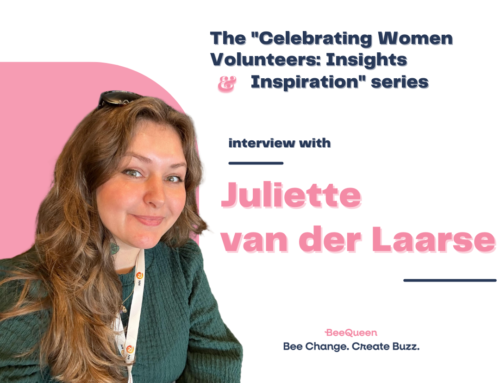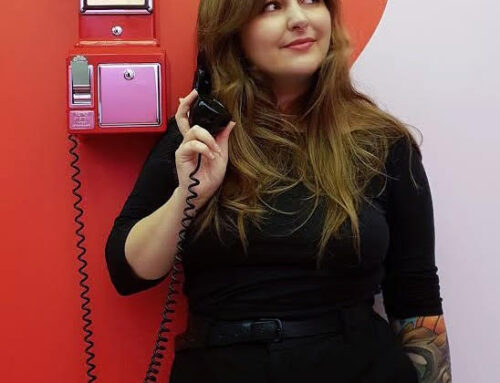In April 2023, I was interviewed by NRC Handelsblad about women in IT—a topic that’s always close to my heart. The conversation took place over the phone, and as always, I found myself reflecting on how much the field has changed since I first got into it.
I shared my story about how I got started in IT, largely thanks to the support of my uncle, who recognized my interest early on and encouraged it. But, interestingly enough, at one point, I almost chose a completely different path—fashion. The fashion industry seemed to fit the image I had of myself better than the “nerdy” IT world at the time. IT just didn’t feel like a space where I could fully express my creativity or individuality back then.
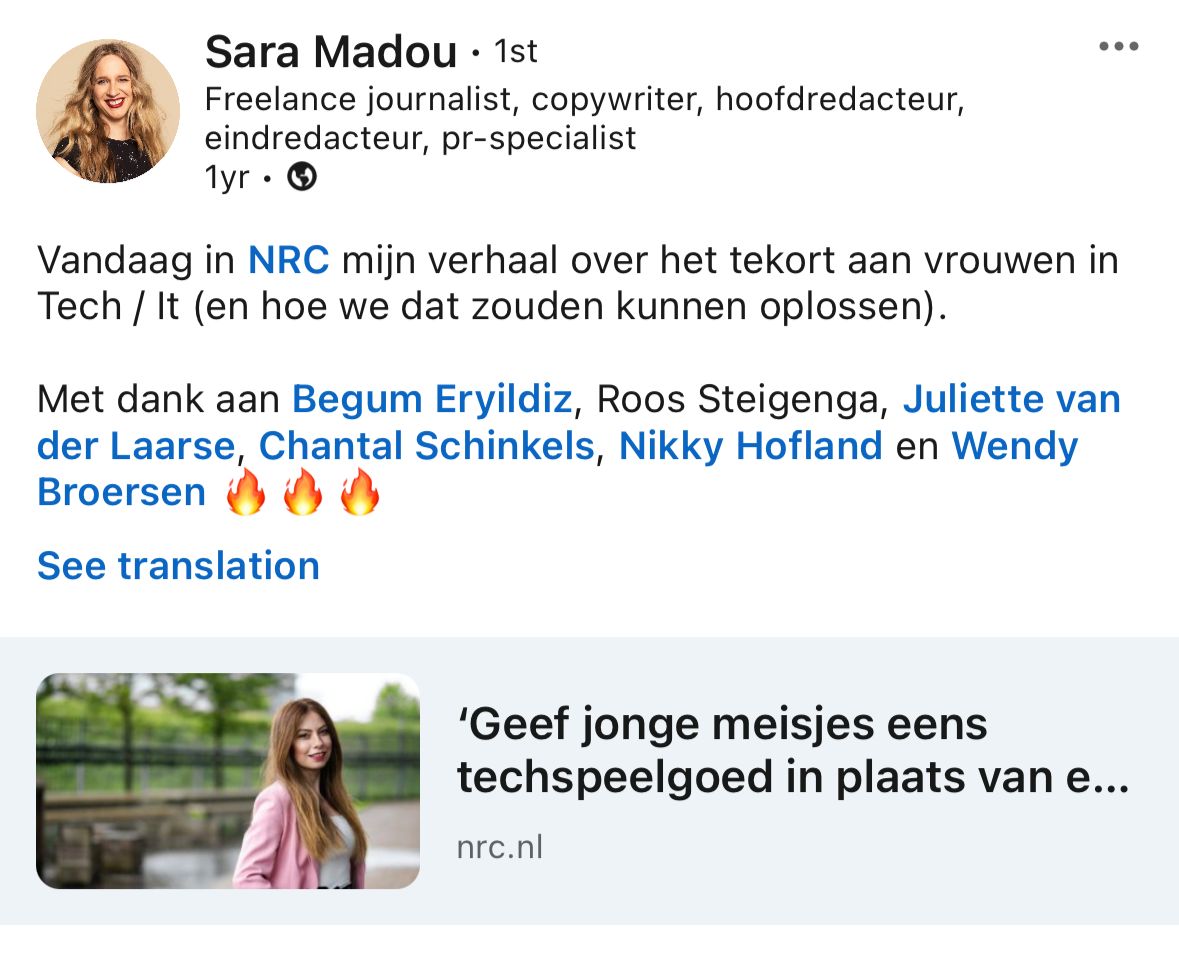
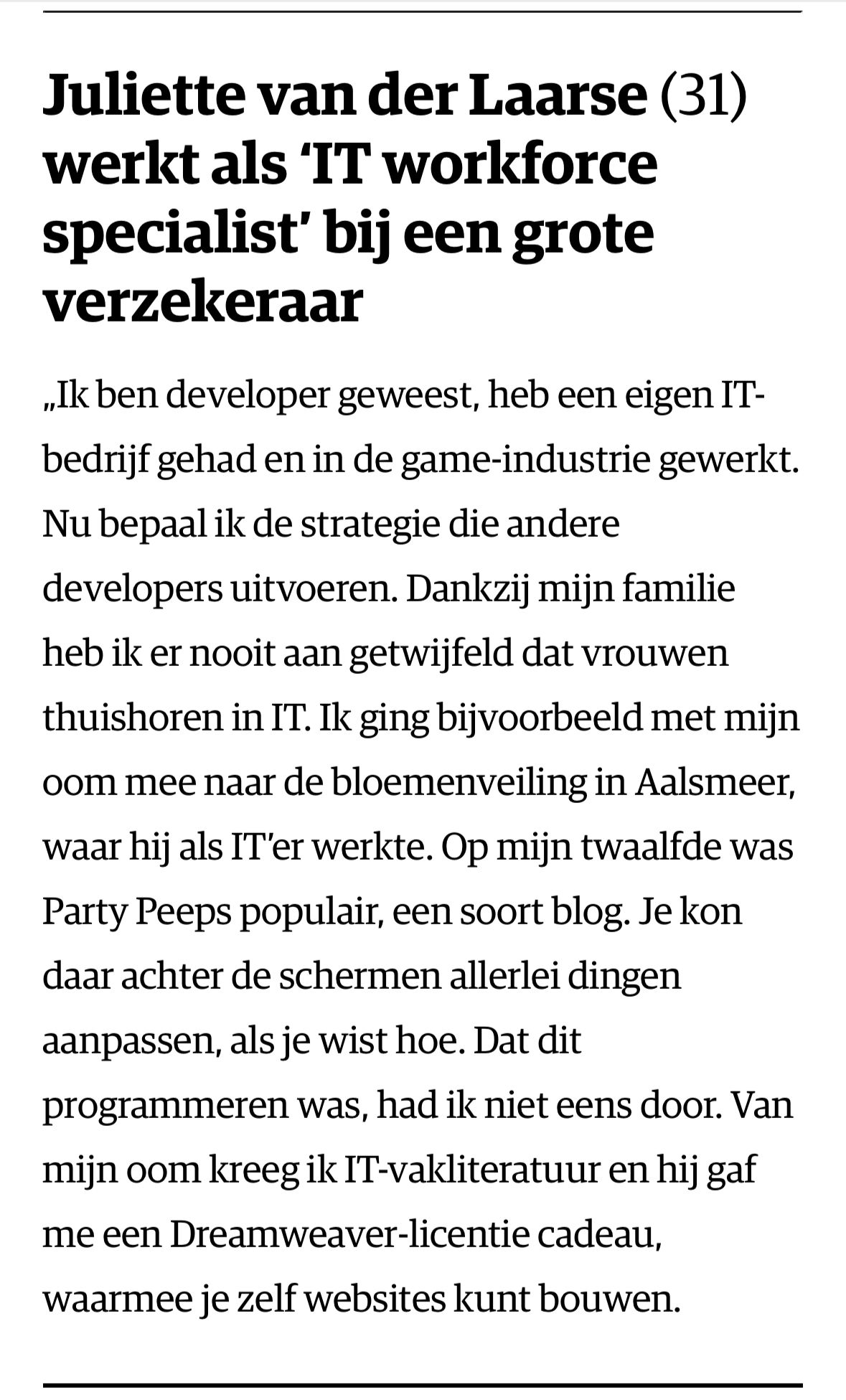
During the interview, I also shared how much I think this is changing. When I was younger, the IT field had an image problem—it was seen as rigid, technical, and, to be honest, a bit unapproachable for girls like me. However, lately, I’ve found myself drawn into a new kind of IT culture on Instagram. It’s a bubble of female coders and IT professionals sharing their lives in a way that feels soft, feminine, and more accessible.
These women are sitting in their cozy, work-from-home spaces, sipping matcha lattes, wearing cute, comfy outfits, and decorating their laptops with colorful stickers. What I love most is that, while the aesthetics are different, the work they’re doing is still hardcore coding and deep tech. It’s complex, technical, and challenging—but now it’s being presented in a way that makes the field feel more welcoming to others, especially young girls. This shift toward accepting not just women, but femininity in IT, is something I’ve long hoped to see. And I’m so happy it’s happening.
It all reminded me of Penelope Garcia, a character from Criminal Minds. I used to watch the show when I was younger, and I was already coding by then. Penelope was the first female coder I ever saw on screen who wasn’t sexualized but was allowed to be her fun, quirky, colorful self. She was creative, feminine, and completely tech-savvy, and she was proof that you didn’t need to fit into a specific mold to belong in IT. Seeing her was a breath of fresh air for me back then, and now, with this new wave of female coders on social media, I see that same energy coming to life.
This shift isn’t just about coding anymore—it’s about showing that you can be both highly skilled and unapologetically yourself, and that’s exactly what’s going to inspire the next generation of girls to see IT as a place where they belong. Unfortunately, in this topic of feminine aesthetics, I was the only interviewee not in frame because I was enjoying a holiday abroad at the time the photographer took the pictures.
Article & Translation
In April 2023, I was interviewed by NRC Handelsblad about women in IT—a topic that’s always close to my heart. The conversation took place over the phone, and as always, I found myself reflecting on how much the field has changed since I first got into it.
I shared my story about how I got started in IT, largely thanks to the support of my uncle, who recognized my interest early on and encouraged it. But, interestingly enough, at one point, I almost chose a completely different path—fashion. The fashion industry seemed to fit the image I had of myself better than the “nerdy” IT world at the time. IT just didn’t feel like a space where I could fully express my creativity or individuality back then.

During the interview, I also shared how much I think this is changing. When I was younger, the IT field had an image problem—it was seen as rigid, technical, and, to be honest, a bit unapproachable for girls like me. However, lately, I’ve found myself drawn into a new kind of IT culture on Instagram. It’s a bubble of female coders and IT professionals sharing their lives in a way that feels soft, feminine, and more accessible.
These women are sitting in their cozy, work-from-home spaces, sipping matcha lattes, wearing cute, comfy outfits, and decorating their laptops with colorful stickers. What I love most is that, while the aesthetics are different, the work they’re doing is still hardcore coding and deep tech. It’s complex, technical, and challenging—but now it’s being presented in a way that makes the field feel more welcoming to others, especially young girls. This shift toward accepting not just women, but femininity in IT, is something I’ve long hoped to see. And I’m so happy it’s happening.
It all reminded me of Penelope Garcia, a character from Criminal Minds. I used to watch the show when I was younger, and I was already coding by then. Penelope was the first female coder I ever saw on screen who wasn’t sexualized but was allowed to be her fun, quirky, colorful self. She was creative, feminine, and completely tech-savvy, and she was proof that you didn’t need to fit into a specific mold to belong in IT. Seeing her was a breath of fresh air for me back then, and now, with this new wave of female coders on social media, I see that same energy coming to life.
This shift isn’t just about coding anymore—it’s about showing that you can be both highly skilled and unapologetically yourself, and that’s exactly what’s going to inspire the next generation of girls to see IT as a place where they belong. Unfortunately, in this topic of feminine aesthetics, I was the only interviewee not in frame because I was enjoying a holiday abroad at the time the photographer took the pictures.
Article & Translation


